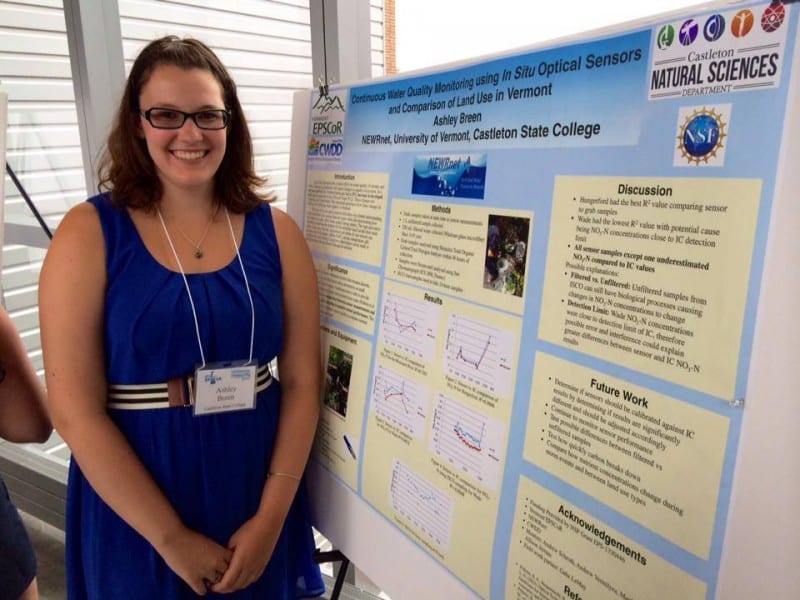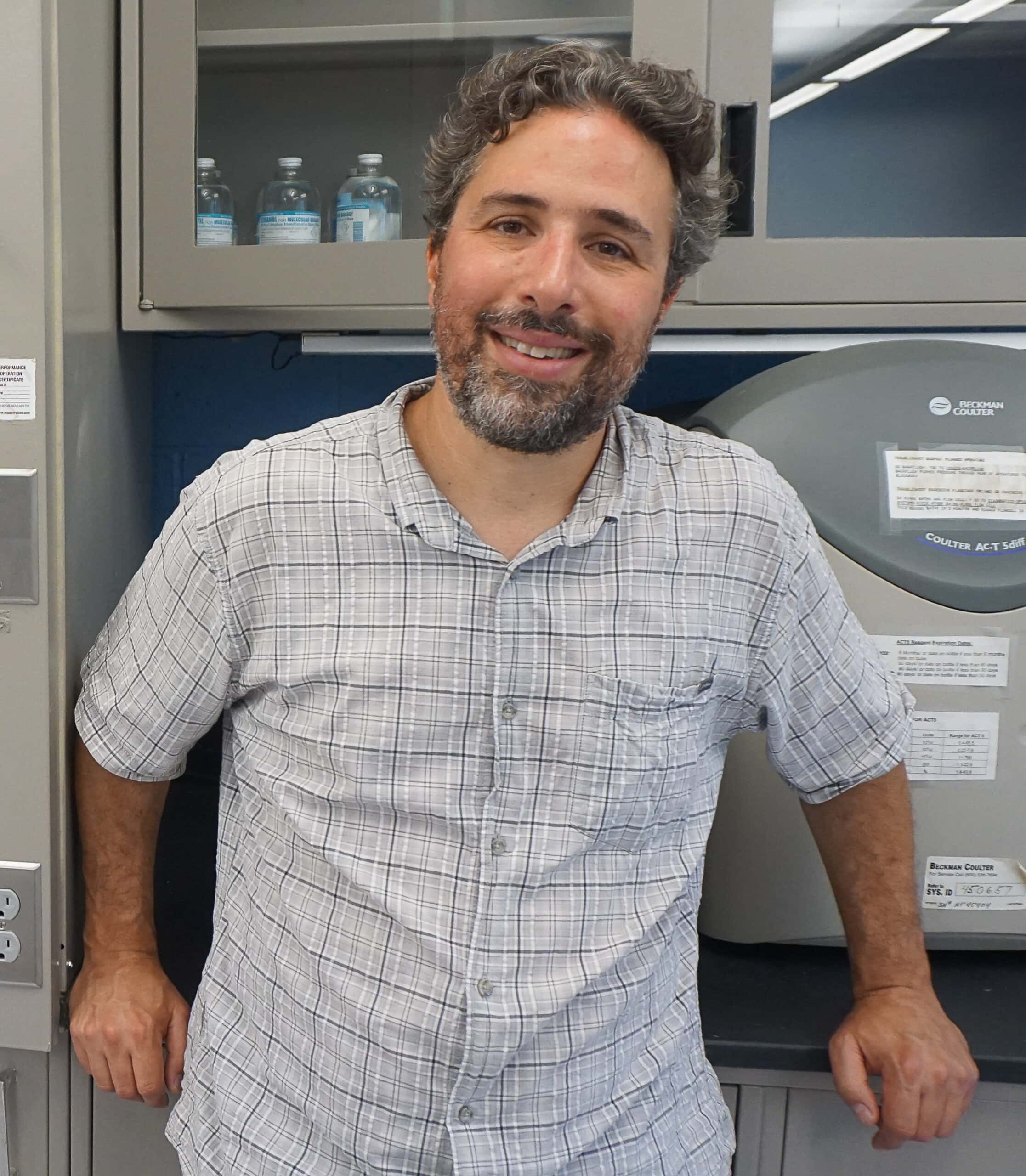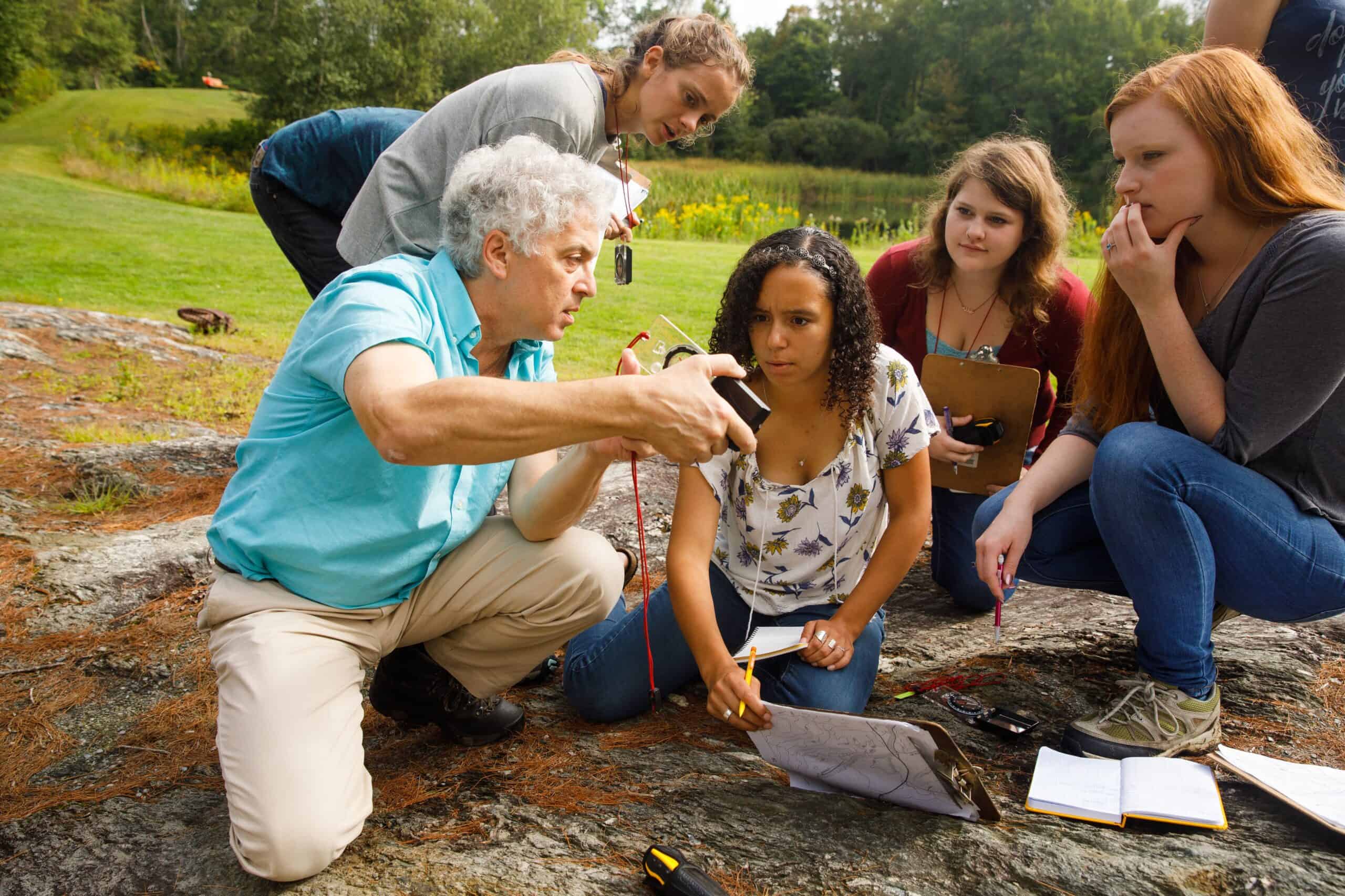Why Study Environmental Science at Vermont State?
- Solid Earning Potential: You can make a difference and make a good living. Environmental scientists earn a median salary of $76,530 per year, according to the Bureau of Labor Statistics.
- Immersion in Nature: You’ll explore the natural beauty of the outdoors through lab and travel courses. Opportunities range from Vermont’s natural ecosystems to the Mojave Desert, Belize, Yellowstone, Grand Canyon, Olympic Peninsula, and more.
- Versatile Skill Set: Prepare for a variety of careers in environmental science and related fields and easily adapt to changes in the job market. You’ll acquire foundational knowledge and research skills in biology, chemistry, geology, ecology, and more.
- Foundation for Graduate Studies: Our rigorous and multi-disciplinary program opens the door to advanced studies in environmental science, environmental law, soil science, and other rewarding fields.
- Pathway to a Teaching Career: Are you eager to share your passion for the natural world with the next generation? You can combine your environmental science major with our Secondary Education program and graduate ready to pursue licensure and jobs as a high school science teacher.
What You’ll Learn
Environmental science is an interdisciplinary major that draws upon the fields of biology, chemistry, and geology for a comprehensive understanding of environmental problems and their solutions. In the bachelor’s in environmental science program at Vermont State, you’ll take coursework in all these areas to build your knowledge and practical experience with the theories, tools, and research techniques of each field.
You’ll deepen your understanding and apply core scientific concepts by selecting two courses each from the areas of environmental science, sustainability, and ecology.
Internships and independent research opportunities will complement your coursework and build your practical research skills for environmental science jobs. Along the way, you will find plenty of opportunities to expand your career vision, build your professional network, and develop as a scientist through departmental colloquia featuring visiting researchers.
Outside the Classroom, In the Community
As a student at Vermont State, you’ll have the opportunity to discover and explore in the lab and the field, both during coursework and through numerous research opportunities.
You might participate in a faculty-led research project during a paid summer internship. Alternatively, you can secure internships with research organizations around the state, the country, and the world.
You can even plan your own independent research under faculty supervision and make a unique contribution to the field. Recent student projects have explored areas like:
- Establishing a discharge gauge in the Castleton River
- Monitoring nutrient export in the Castleton River
- Characterizing dissolved organic matter via fluorescence
- Surveying salamander populations in various habitats
- Determining the effects of household cleaners on aquatic organism mortality
Special Facilities
Prepare for job in environmental science with access to facilities that will familiarize you with scientific equipment, develop your technical skills as a scientist, and provide rich areas for exploration.
Depending on the campus, you’ll find well-appointed teaching and research laboratories, special facilities like the artificial stream lab and Castleton Greenhouse, computer workstations with GIS software, and expansive outdoor spaces like the Babcock Nature Preserve for research and study.
Request Information
Sample Courses
- Biology I
- Ecology
- Dynamic Earth
- Environmental Law & Policy
Student Stories

“Working with partners in the field in my research and internships before I graduated helped me form professional relationships with people I would eventually get a job with.”
Alli Lewis
“Starting with day one of classes my first year I was doing fieldwork. Vermont is a great place to study the sciences.”
Ashley Breen

Meet Our Faculty









